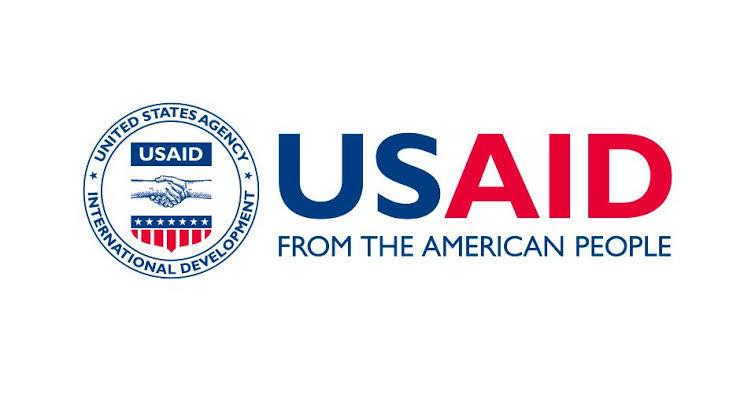The Federal Government of Nigeria has collaborated with the U.S Agency for International Development (USAID), as it launches nutrition documents to enhance the fight against nutrition deficiency in Nigeria.
The Minister of Health, Dr Osagie Ehanire who was represented by the Director Head, Family Health Department, FMOH, Dr Salma Anas said the documents provide strategic direction and guidance on effective implementation of evidence-based, cost-effective and high-impact nutrition interventions to ensure adequate nutrition for all (SDG 3) for Universal Health Coverage.
Ehanire stated that malnutrition is the leading cause of most health challenges across the spectrum of life especially in children of less than 5 years of age.
He assured that the federal government is committed to improving the nutrition status of the populace as it recognises the importance of eradicating malnutrition.
His words, “Malnutrition in all its forms of undernutrition, micronutrient deficiency and overnutrition is an underlying cause of most health challenges across the spectrum of life, with the worst manifestations seen in children less than 5 years of age. According to NDHS 2018, Stunting in children under 5years is 37%; Wasting 7.2%; Iron deficiency anaemia is 68%; while anaemia in Women of Reproductive age 61%.
“The Federal Government of Nigeria remains committed to the improvement of the nutrition status of the populace and the Government recognizes that eradicating malnutrition will yield substantial economic, social and human capital development benefits. This requires concerted efforts from Government at all levels, Partners and all relevant Stakeholders.
“With the support of the World Bank Group, investment in Nutrition was prioritized through the multi-sectoral ANRIN Project domiciled in the FMOH, other Federal Implementing entities, and twelve States. The project is focused on increasing the utilization of quality, cost effective nutrition services for pregnant and lactating women, adolescent girls, and children under 5 yrs of age. It is expected that the gains of this investment in the coming years will set the trajectory for and indeed result in significant reduction in the stunting rate in Nigeria.
“This necessitates policy direction for implementation of nutrition activities across the Country, which is provided by the Federal Ministry of Health.
“The Federal Ministry of Health provides leadership and strategic policy direction for nationwide implementation of nutrition activities for targeted results. To achieve this, several national nutrition policy documents were developed and reviewed in collaboration with partners and stakeholders in
line with the Sustainable Development Goals (SDG), World Health Assembly (WHA), African Union (AU) and NSHDP II nutrition targets.”
The documents he said, include: “National Policy on Maternal, Infant and Young Child Nutrition (MIYCN); National Strategy for Maternal, Infant and Young Child Nutrition; National Guidelines for Maternal, Infant and Young Child Nutrition; National Guidelines on Integrated Management of Acute Malnutrition; National Guidelines for the Prevention and Control of Micronutrient Deficiencies in Nigeria; and the Health Sector Recommendations for Nutrition Indicators Collected Nationally in Nigeria.”
According to him, the policies and guidelines if implemented effectively will significantly reduce malnutrition rates in the country and contribute to human capital development. He therefore urged all relevant stakeholders to ensure the document is utilised.
“I urge all actors – government, implementing partners, donors, private sector and all nutrition stakeholders – to continue to support the federal government to ensure that these documents are judiciously utilized at all levels.
“Finally, I urge everyone of us not to rest on our oars, till the menace of Malnutrition is eradicated from our society.”
In his remarks at the launch, the Chief Nutritionist, U.S Agency for International Development (USAID), Shawn Baker underscored the need for government to show poetical will and also provide adequate training for health workers to ensure effective implementation of the policies, strategies and guidelines, as well as translate them into action.
Baker assured that there is robust collaboration amongst development partners and the government. He however stressed the need for continuous effort until the ultimate goals are achieved.
“We have the technical solutions, we have the systems, but it is the political will of the government that can hold the systems and ensure the resources are in place for implementation to take place” he said.
According to him, the funding from the USAID will augment government’s efforts in tackling the menace of food insecurity in Nigeria as well as the disturbing growth of child wasting.
“In the US, at the global level, we are grateful to congress for stepping up to the current crisis and appropriating supplemental funding to both our humanitarian assistance budgets and out development budgets.
“We are using this funding to respond to the immediate crisis as well as further strengthen the system to be able to face down such crisis in the future. We also recognize that our resources are still far too little to meet the needs and are advocating for government partners, our donor partners, our philanthropic partners and private sector to step up and do more.
“We are fortunate that our mission in Nigeria is receiving $55 million of this funding to support the government’s efforts to address food insecurity and the growing burden of child wasting, ” Baker stated, adding that with renewed political commitment by the Federal Government and the states of the federation, Nigeria can tackle the bedevilling challenge of malnutrition.



